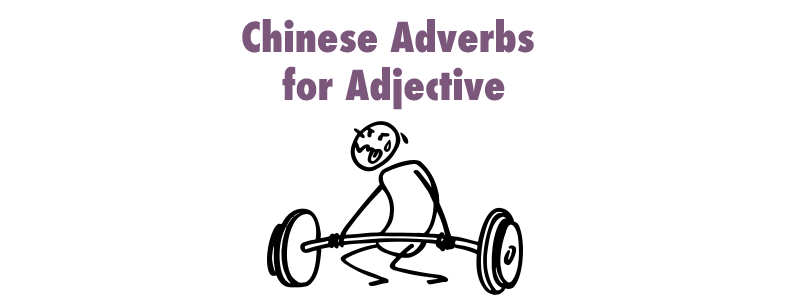Grammar Point:
In most situations, Chinese adjectives typically require an adverb. Here are the adverbs we are going to look at in this article:
- 比较 bǐjiào – relatively or comparatively
- 更加 gèngjiā – even more or further. It is often used in formal or literary contexts.
- 还 hái – surpasses. It indicates a higher degree or level
- 相当 xiāngdāng – quite
Examples
他的想法比較傳統他的想法比较传统
His thoughts are relatively traditional (conservative).
日本料理在台灣比較貴日本料理在台湾比较贵
Japanese cuisine is relatively expensive in Taiwan.
你的說法讓我更加糊塗了你的说法让我更加糊涂了
Your statement has confused me even more.
抱歉我放屁了,你不要說話,不然我會更加尷尬抱歉我放屁了,你不要说话,不然我会更加尴尬
Sorry, I fart. Please don’t say anything, otherwise, I’ll feel even more embarrassed.
中文比英文還簡單中文比英文还简单
Chinese is even simpler than English.
你的成績比我還好很多,我沒希望拿獎學金了你的成绩比我还好很多,我没希望拿奖学金了
Your grades are much better than mine. I have no hope of getting a scholarship.
他的中文相當流利他的中文相当流利
His Chinese is quite fluent.
我聽說台灣相當安全我听说台湾相当安全
I heard that Taiwan is quite safe.
FYI
Taiwan is renowned for its safety, offering a secure environment for residents and visitors alike. A notable example of this is how Taiwanese feel comfortable leaving their cell phones and wallets unattended on café tables while briefly stepping away. BUT, I would suggest taking your belongings with you or asking someone you trust to watch over them while you use the restroom. Also, it is generally safe for women to walk alone after 23:00 in Taiwan due to the countless 24-hour convenience stores and the CCTV cameras. Plus, we have a relatively low number of homeless individuals, drug addicts, or drunk people. Even the street dogs are very friendly.
Practice
TouchHover over the space to see the answers.
✔️ Your sister is smarter. (than you)
你姐姐比較聰明你姐姐比较聪明
✔️ So you should work harder.
所以你應該更加努力所以你应该更加努力
✔️ I know you’ve worked hard, but your grades are still worse than your sister’s.
我知道你相當努力了,但是你的成績仍然比姐姐還差我知道你相当努力了,但是你的成绩仍然比姐姐还差
- Adverbs for Adjective 1 (HSK 1)
(很 hěn, 非常 fēicháng, 太 tài, 真 zhēn, and 最 zuì)
- Adverbs for Adjective 2 (HSK 2)
(多么 duōme, 好 hǎo, 有一点 yǒuyìdiǎn, 更 gèng, 十分 shífēn, 特别 tèbié, and 挺 tǐng)
- Adverbs for Adjective 4 (HSK 4)
(格外 géwài, 极 jí, and 极其 jíqí)


